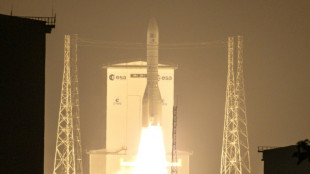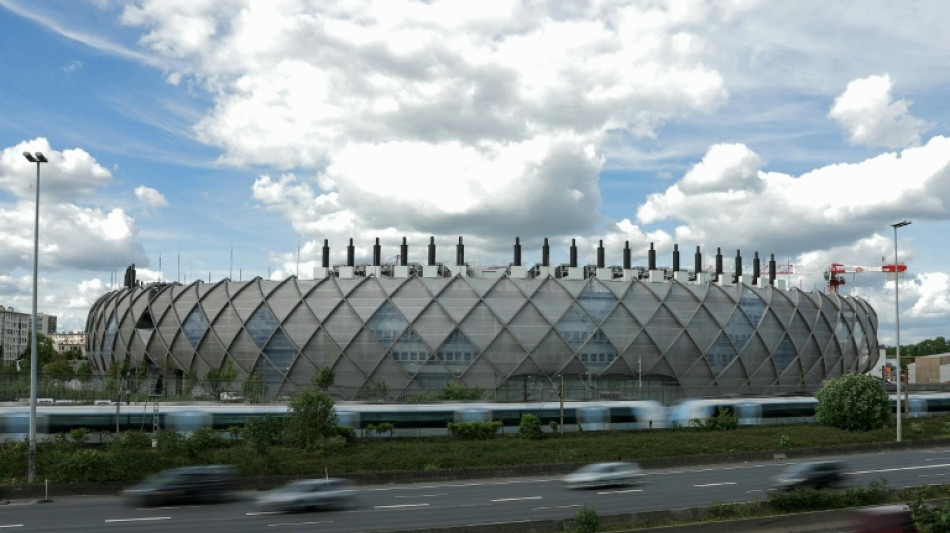
-
 Lyon humbled to surpass childhood hero McGrath's wicket tally
Lyon humbled to surpass childhood hero McGrath's wicket tally
-
Sri Lanka plans $1.6 bn in cyclone recovery spending in 2026

-
 England vow to keep 'fighting and scrapping' as Ashes slip away
England vow to keep 'fighting and scrapping' as Ashes slip away
-
'Never enough': Conway leans on McKenzie wisdom in epic 300 stand

-
 Most Asian markets track Wall St lower as AI fears mount
Most Asian markets track Wall St lower as AI fears mount
-
Cambodia says Thailand bombs casino hub on border
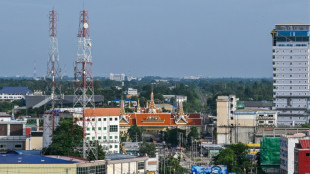
-
 Thai queen wins SEA Games gold in sailing
Thai queen wins SEA Games gold in sailing
-
England Ashes dreams on life-support as Australia rip through batting

-
 Masterful Conway, Latham in 323 opening stand as West Indies wilt
Masterful Conway, Latham in 323 opening stand as West Indies wilt
-
Danish 'ghetto' tenants hope for EU discrimination win
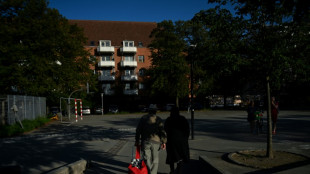
-
 Cricket Australia boss slams technology as Snicko confusion continues
Cricket Australia boss slams technology as Snicko confusion continues
-
Conway and Latham's 323-run opening stand batters hapless West Indies

-
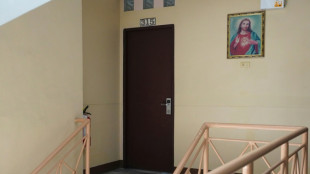 Alleged Bondi shooters holed up in hotel for most of Philippines visit
Alleged Bondi shooters holed up in hotel for most of Philippines visit
-
Japan govt sued over 'unconstitutional' climate inaction
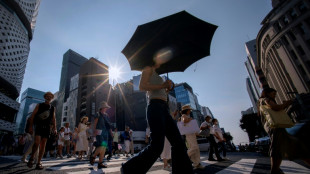
-
 US approves $11 billion in arms sales to Taiwan: Taipei
US approves $11 billion in arms sales to Taiwan: Taipei
-
England battle to save Ashes as Australia rip through top-order

-
 Guarded and formal: Pope Leo XIV sets different tone
Guarded and formal: Pope Leo XIV sets different tone
-
What to know about the EU-Mercosur deal
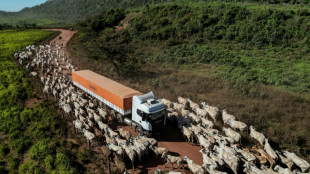
-
 Trump vows economic boom, blames Biden in address to nation
Trump vows economic boom, blames Biden in address to nation
-
Conway 120 as New Zealand in command at 216-0 against West Indies

-
 Taiwan eyes fresh diplomatic ties with Honduras
Taiwan eyes fresh diplomatic ties with Honduras
-
ECB set to hold rates but debate swirls over future

-
 Asian markets track Wall St lower as AI fears mount
Asian markets track Wall St lower as AI fears mount
-
EU holds crunch summit on Russian asset plan for Ukraine

-
 Australia PM vows to stamp out hatred as nation mourns youngest Bondi Beach victim
Australia PM vows to stamp out hatred as nation mourns youngest Bondi Beach victim
-
Australian PM vows hate speech crackdown after Bondi Beach attack
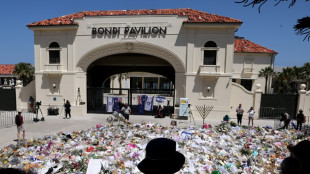
-
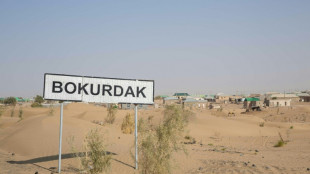 Turkmenistan's battle against desert sand
Turkmenistan's battle against desert sand
-
Ukraine's Zelensky in Poland for first meeting with nationalist president
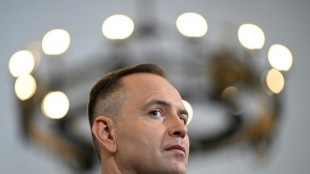
-
 England in disarray at 59-3 in crunch Test as Lyon, Cummins pounce
England in disarray at 59-3 in crunch Test as Lyon, Cummins pounce
-
Japan faces lawsuit over 'unconstitutional' climate inaction
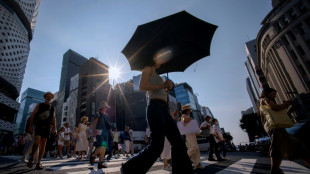
-
 Migrants forced to leave Canada after policy change feel 'betrayed'
Migrants forced to leave Canada after policy change feel 'betrayed'
-
What's next for Venezuela under the US oil blockade?

-
 Salvadorans freed with conditional sentence for Bukele protest
Salvadorans freed with conditional sentence for Bukele protest
-
Brazil Congress passes bill to cut Bolsonaro prison term
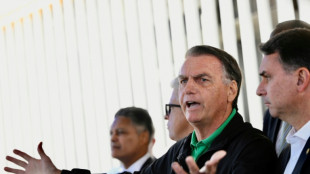
-
 Cricket Australia boss slams technology 'howler' in Ashes Test
Cricket Australia boss slams technology 'howler' in Ashes Test
-
New Zealand 83-0 at lunch on day one of third West Indies Test

-
 Ecuadorean footballer Mario Pineida shot and killed
Ecuadorean footballer Mario Pineida shot and killed
-
US government admits liability in deadly DC air collision

-
 Hemogenyx Pharmaceuticals PLC - Issue of Equity
Hemogenyx Pharmaceuticals PLC - Issue of Equity
-
SolePursuit Capital Syndicate Establishes Strategic Coordination Office and Appoints Laurence Kingsley as Head
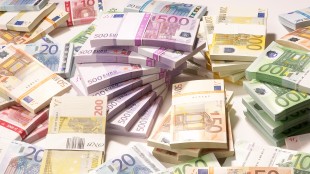
-
 1933 Industries Announces Maturity of Unsecured Convertible Debentures and Encourages Conversion to Support Continued Growth
1933 Industries Announces Maturity of Unsecured Convertible Debentures and Encourages Conversion to Support Continued Growth
-
Ex-podcaster Dan Bongino stepping down as deputy FBI director
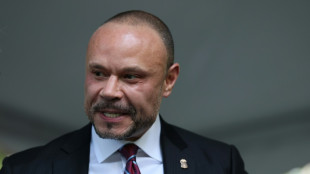
-
 Real Madrid scrape past third-tier Talavera in Spanish Cup
Real Madrid scrape past third-tier Talavera in Spanish Cup
-
Hunt for US college mass shooter drags into fifth day

-
 Cherki inspires Man City, Newcastle strike late to reach League Cup semis
Cherki inspires Man City, Newcastle strike late to reach League Cup semis
-
Barcelona, Lyon and Chelsea reach Women's Champions League quarters

-
 Venezuela reacts defiantly to US oil blockade, claims exports unaffected
Venezuela reacts defiantly to US oil blockade, claims exports unaffected
-
Nasdaq tumbles on renewed angst over AI building boom
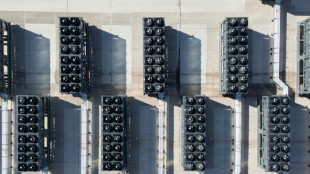
-
 S.Africa expels Kenyans working on US Afrikaner 'refugee' applications
S.Africa expels Kenyans working on US Afrikaner 'refugee' applications
-
US Congress ends Syria sanctions

| SCS | 0.12% | 16.14 | $ | |
| RBGPF | -2.23% | 80.22 | $ | |
| CMSC | -0.34% | 23.26 | $ | |
| GSK | -0.14% | 48.71 | $ | |
| VOD | 0.86% | 12.81 | $ | |
| BTI | -0.21% | 57.17 | $ | |
| RYCEF | 1.48% | 14.86 | $ | |
| NGG | 1.8% | 77.16 | $ | |
| AZN | -1.66% | 89.86 | $ | |
| BCE | -0.78% | 23.15 | $ | |
| RIO | 1.55% | 77.19 | $ | |
| RELX | -0.64% | 40.56 | $ | |
| BCC | 0.59% | 76.29 | $ | |
| CMSD | -0.43% | 23.28 | $ | |
| BP | 2.06% | 34.47 | $ | |
| JRI | -0.6% | 13.43 | $ |

France quietly catches rivals in battle for data centre supremacy
At the end of a narrow suburban street north of Paris, a giant structure shrouded in a skin of mesh and steel looks like a football stadium, but is in fact a vast data centre.
Paris Digital Park, which towers over four-storey apartment blocks and is owned by US firm Digital Realty, is one of more than 70 centres that ring the French capital -- more than a third of the country's total.
The government is pushing hard to expand an industry seen as the backbone of the digital economy, playing catch-up with established hubs like London and Frankfurt, and is so far avoiding the backlash that has slowed development elsewhere.
"The Paris region is the fourth largest hub in the world for content exchanges," Fabrice Coquio, President of Digital Realty France, told AFP on a recent tour of his firm's campus.
The capital region's data centre industry is already worth 1.2 billion euros ($1.3 billion), according to specialist consultancy Structure Research.
And Coquio, like everyone else in the industry, believes artificial intelligence is about to supercharge it.
He said the massive computing needs of AI would power a "second wave" of expansion for data centres, after the shift to cloud computing fuelled the first wave.
Jerome Totel of French firm Data4 said there were virtually no AI-ready data centres in France right now. But by 2030 data capacity would double in France, with between 30 and 40 percent of it dedicated to the technology, according to a recent report by trade group Datacenter.
That expansion will suck up power and land on a dramatic scale -- Coquio sees electricity usage at data centres doubling in the next four years.
But unlike in other parts of the world, there are few dissenting voices in France.
- 'Isolated' protests -
Concerns over energy and land use pushed Amsterdam and Dublin to restrict licences for new data centres -- helping Paris overtake the Dutch capital in the race for market share.
Frankfurt has clamped down on data centre sprawl with new zoning and energy rules.
And public protests have been seen recently from the Netherlands to the heart of the global industry in the US state of Virginia.
Yet in France, one of the few concerted efforts to block a centre was back in 2015 when Coquio's firm -- then known as Interxion -- had to overcome local protests and legal challenges to an earlier building.
Amazon's data centre arm, AWS, also backed off from a planned centre in 2021 after facing pushback in Bretigny-sur-Orge, in the south of Paris.
"Protests have existed and still exist, but they are very ad hoc and isolated," said Clement Marquet, a researcher at Paris-based engineering school Mines.
He said the objections had not gone beyond NIMBY, or "not in my backyard".
Those who had tried to widen the issue to the broader climate costs of digital developments "failed to bring people together over time and eventually gave up", said Marquet.
- Faster planning -
France already has some advantages that explain why data centre developments are not as divisive as in other countries.
It is much bigger than the Netherlands or Ireland, with much more free land and a less strained power grid.
Added to this, national laws largely restrict data centre companies to building on land already in industrial use.
Coquio stresses that his new Paris campus is built on a former Airbus helicopter plant.
Keeping developments mostly out of the public eye, tucked away next to motorways, in former factories, and on wasteland, has helped keep the public neutral about the centres.
However, this balance could be about to shift.
Before President Emmanuel Macron called snap elections in June that his centrist party lost, resulting in a hung parliament, his government had been trying to push through a law that would allow large data centres to be classified as projects of major national interest.
The idea would be to speed up planning processes and connection to the power grid.
Marquet said France should be moving in the opposite direction and putting more thought into planning.
"In the long term, we all need to think hard about the ecological consequences of digital growth in general," he said, labelling the current habit of ignoring climate concerns as "absurd".
But with the ramped-up computing needs of AI combining with looser regulation, the transformation of France's post-industrial suburbs looks set to continue apace.
J.Oliveira--AMWN
